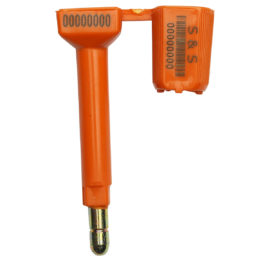ISO 17712 is an international standard that sets guidelines for the mechanical security of containers, specifically focusing on seals used to secure containers in transit. These seals are essential to ensure the integrity and security of cargo during transportation. To comply with ISO 17712, seals must meet certain criteria, including specific strength requirements, tamper-evident features, and clear markings.
In South Korea, as a major player in global trade and logistics, the demand for ISO 17712 testing services is significant. Businesses and organizations involved in international trade rely on these services to ensure their container seals meet the required standards and guarantee the security of their shipments. This article will delve into the importance of ISO 17712 testing services in South Korea and highlight the key aspects of these services.
Importance of ISO 17712 Testing Services in South Korea:
- Ensuring International Compliance:
South Korean companies engaged in global trade must comply with international regulations to maintain smooth operations and build trust with their international partners. ISO 17712 is one such critical regulation that aims to prevent unauthorized access to containers during transit. By obtaining ISO 17712 certification through testing services, South Korean businesses can demonstrate their commitment to international compliance and security standards. - Preventing Cargo Tampering and Theft:
Cargo tampering and theft during transit can result in significant financial losses for businesses and disrupt the supply chain. ISO 17712-compliant seals provide a higher level of security and act as a deterrent against tampering and theft. With proper testing, companies can identify weak points and vulnerabilities in their security measures and take necessary steps to address them. - Enhancing Reputation and Credibility:
ISO 17712 certification enhances the reputation and credibility of South Korean companies in the global market. Customers and partners are more likely to trust businesses that prioritize security and have their seals tested by reputable ISO 17712 testing services. This trust can lead to more significant business opportunities and partnerships. - Adherence to Customs Requirements:
Customs authorities worldwide often require ISO 17712-compliant seals on containers for security and inspection purposes. By having their seals tested and certified, South Korean exporters can avoid delays at borders and reduce the risk of containers being flagged for inspection due to non-compliance. - Access to New Markets:
Certain markets or customers may have strict requirements for container security, and ISO 17712 compliance might be a prerequisite for doing business with them. By obtaining ISO 17712 certification through testing services, South Korean exporters can access new markets and expand their global reach.
Key Aspects of ISO 17712 Testing Services in South Korea:
- Strength and Durability Testing:
One of the primary requirements of ISO 17712 is the strength and durability of container seals. Testing services in South Korea evaluate seals to ensure they can withstand forceful attempts of tampering without breaking or becoming compromised. - Tamper-evident Features Evaluation:
ISO 17712-compliant seals must have tamper-evident features that indicate any unauthorized attempts to breach the seal. Testing services carefully examine these features to ensure they function as intended and can provide clear evidence of tampering. - Environmental Resistance Testing:
Container seals face various environmental conditions during transit, such as extreme temperatures, humidity, and exposure to saltwater. Testing services assess seals’ ability to withstand these conditions without losing their effectiveness. - Marking and Labeling Verification:
ISO 17712 requires seals to bear specific markings and identification numbers for traceability purposes. Testing services validate whether the seals are correctly labeled, ensuring easy identification and tracking. - Accreditation and Certification:
When selecting ISO 17712 testing services in South Korea, it is crucial to choose laboratories accredited by relevant bodies. These accredited labs provide reliable and accurate results, and their certifications hold more weight in the international market.
Conclusion:
ISO 17712 testing services play a vital role in ensuring container security and compliance with international standards for South Korean businesses engaged in global trade. By adhering to ISO 17712 requirements, companies can enhance their credibility, prevent cargo tampering, and gain access to new markets. It is essential for South Korean exporters and logistics providers to partner with reputable testing services that can provide accurate assessments and certifications for their container seals. As global trade continues to grow, the significance of ISO 17712 testing services in South Korea will only increase, driving companies to prioritize container security to protect their shipments and maintain a competitive edge in the international market.











